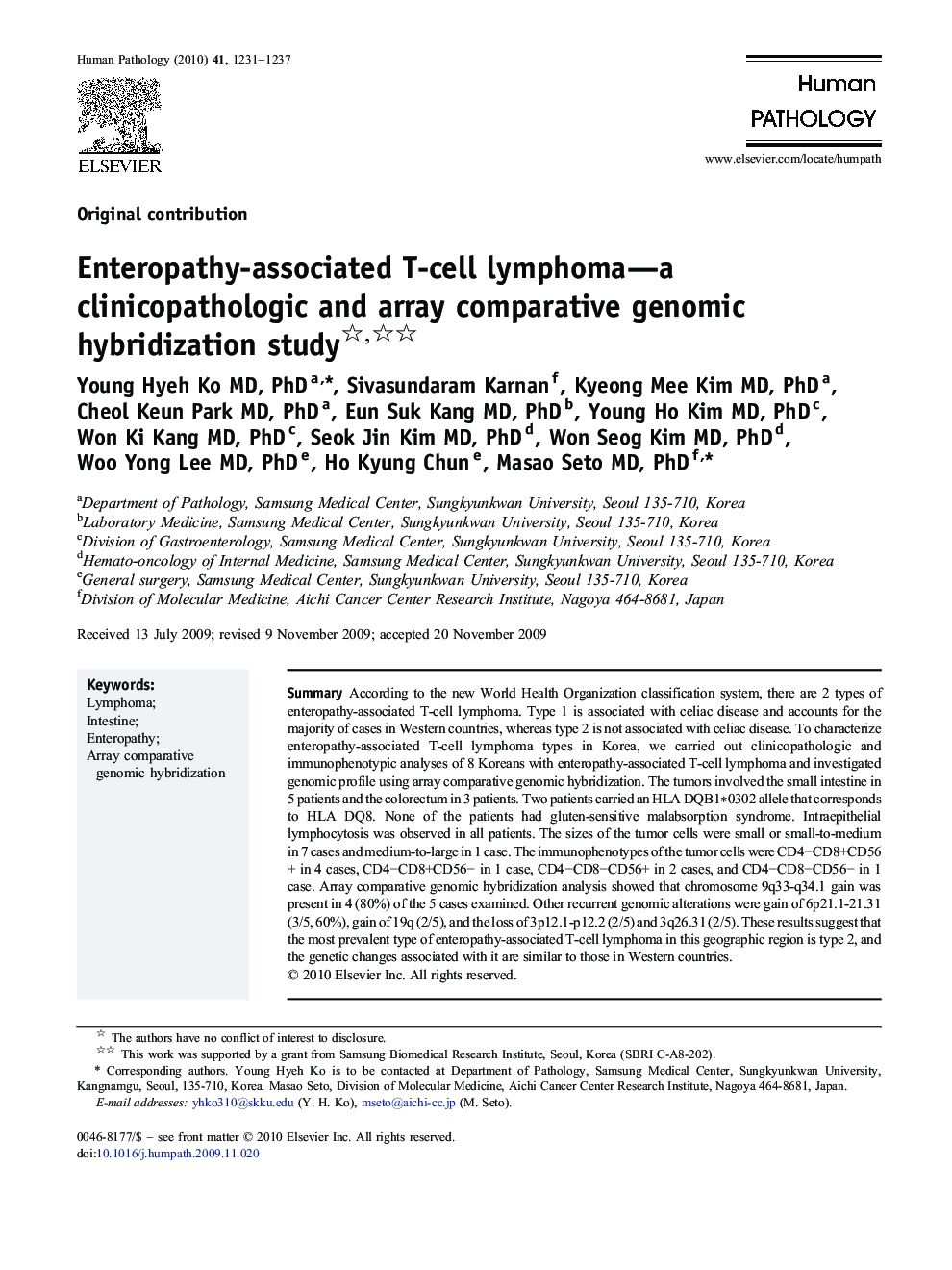| Article ID | Journal | Published Year | Pages | File Type |
|---|---|---|---|---|
| 4134302 | Human Pathology | 2010 | 7 Pages |
SummaryAccording to the new World Health Organization classification system, there are 2 types of enteropathy-associated T-cell lymphoma. Type 1 is associated with celiac disease and accounts for the majority of cases in Western countries, whereas type 2 is not associated with celiac disease. To characterize enteropathy-associated T-cell lymphoma types in Korea, we carried out clinicopathologic and immunophenotypic analyses of 8 Koreans with enteropathy-associated T-cell lymphoma and investigated genomic profile using array comparative genomic hybridization. The tumors involved the small intestine in 5 patients and the colorectum in 3 patients. Two patients carried an HLA DQB1⁎0302 allele that corresponds to HLA DQ8. None of the patients had gluten-sensitive malabsorption syndrome. Intraepithelial lymphocytosis was observed in all patients. The sizes of the tumor cells were small or small-to-medium in 7 cases and medium-to-large in 1 case. The immunophenotypes of the tumor cells were CD4−CD8+CD56+ in 4 cases, CD4−CD8+CD56− in 1 case, CD4−CD8−CD56+ in 2 cases, and CD4−CD8−CD56− in 1 case. Array comparative genomic hybridization analysis showed that chromosome 9q33-q34.1 gain was present in 4 (80%) of the 5 cases examined. Other recurrent genomic alterations were gain of 6p21.1-21.31 (3/5, 60%), gain of 19q (2/5), and the loss of 3p12.1-p12.2 (2/5) and 3q26.31 (2/5). These results suggest that the most prevalent type of enteropathy-associated T-cell lymphoma in this geographic region is type 2, and the genetic changes associated with it are similar to those in Western countries.
